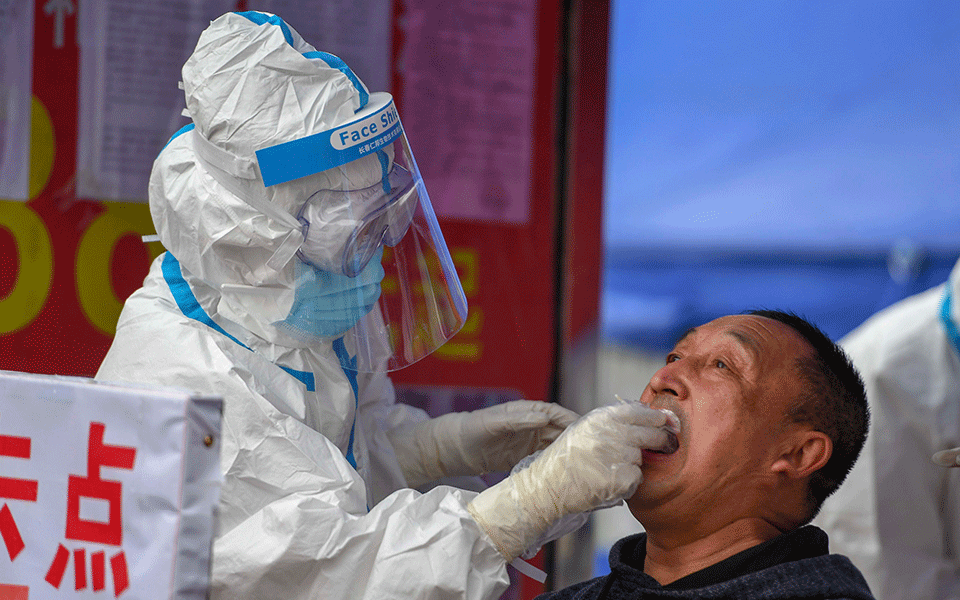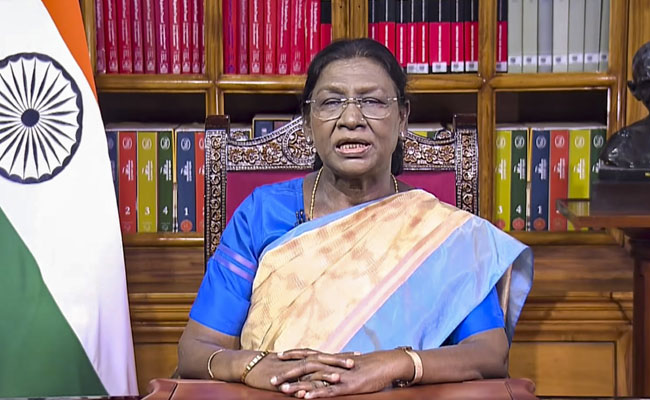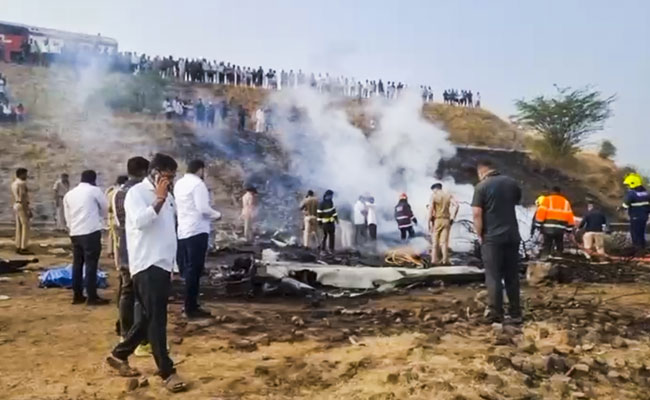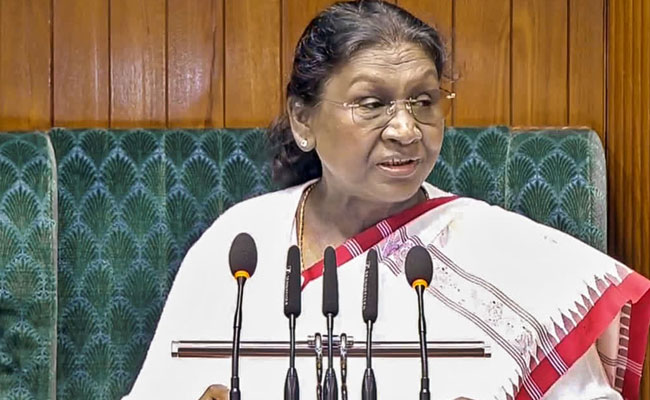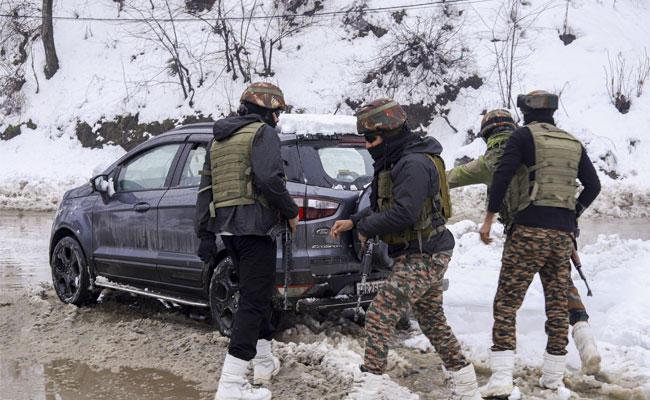London: Although COVID-19 patients may lose their sense of smell, they can breathe freely, do not tend to have a runny or blocked nose, and cannot detect bitter or sweet tastes, a study published on Wednesday has found.
The study is the first to compare how people with COVID-19 smell and taste disorders differ from those with other causes of upper respiratory tract infections, according to the researchers, including those from the University of East Anglia (UEA) in the UK.
The researchers hope that their work could help develop smell and taste tests for fast COVID-19 screening - in primary care and emergency departments.
The findings, published in the journal Rhinology, lend weight to the theory that COVID-19 infects the brain and central nervous system.
"The loss of smell and taste is a prominent symptom of COVID-19, however it is also a common symptom of having a bad cold, said lead researcher Carl Philpott, a professor at UEA's Norwich Medical School.
We wanted to find out exactly what differentiates COVID -19 smell loss with the kind of smell loss you might have with a cold and blocked-up nose," Philpott said.
The research team carried out smell and taste tests on 10 COVID-19 patients, 10 people with bad colds and a control group of 10 healthy people -- all matched for age and sex.
"We wanted to see if their smell and taste test scores could help discriminate between COVID-19 patients and those with a heavy cold, Philpott said.
The researchers noted that COVID-19 behaves differently to other respiratory viruses, for example by causing the body's immune system to over-react, known as a cytokine storm, and by affecting the nervous system.
They found that smell loss was much more profound in the COVID-19 patents, and they were less able to identify smells, and were not able to identify bitter or sweet tastes.
The researchers said it was this loss of true taste which seemed to be present in the COVID-19 patients compared to those with a cold.
"This is very exciting because it means that smell and taste tests could be used to discriminate between COVID-19 patients and people with a regular cold or flu, Philpott said.
"Although such tests could not replace formal diagnostic tools such as throat swabs, they could provide an alternative when conventional tests are not available or when rapid screening is needed -- particularly at the level of primary care, in emergency departments or at airports, he added.
The study also shows that there are altogether different things going on when it comes to smell and taste loss for COVID-19 patients, compared to those with a bad cold, the researchers said.
Let the Truth be known. If you read VB and like VB, please be a VB Supporter and Help us deliver the Truth to one and all.
New Delhi (PTI): President Droupadi Murmu on Wednesday said the world saw the valour of Indian armed forces through Operation Sindoor when they destroyed terror camps on the strength of their own resources and asserted that any terror act will be responded with decisive action.
"India has proved that power can be used with responsibility and wisdom. The world has seen the valour and courage of Indian armed forces through Operation Sindoor," Murmu said in her address to both Houses of Parliament, marking the beginning of the Budget Session.
"Our nation, on the strength of our own resources, destroyed terror camps. My government sent a message that any act of terror will be responded to with resolute and decisive action," the President said, amid thumping of desks by Prime Minister Narendra Modi and other parliamentarians.
Murmu said the suspension of the Indus Water Treaty was part of India's fight against terror.
"We are also working on Mission Sudarshan Chakra to further strengthen national security," the President said, adding that security forces have also taken decisive action against Maoist terror.
Following Operation Sindoor, she said, the trust on Indian defence platforms has increased.
Murmu further said her government was committed to social justice in the country.
In the third term of the government, she said, work is being done to further empower the poor, and social security benefits are available to nearly 95 crore citizens now.
"My government is committed to true social justice," she said, adding that 25 crore Indians moved out of poverty in the last 10 years.
The President also said the government has been successful in tackling corruption and scams, and ensuring proper use of public funds.
"For India, the end of the first 25 years of this century has been filled with several successes, proud achievements and extraordinary experiences. In the last 10-11 years, India has strengthened its foundation in every sector," she said.
Lauding India's celebration of the 350th martyrdom day of the ninth Sikh guru, Guru Tegh Bahadur, and the country's tribute to revered tribal leader and freedom fighter Birsa Munda on his 150th birth anniversary, Murmu said, "when the country remembers the contribution of its ancestors, the new generation gets inspiration, which further speeds up our journey towards Viksit Bharat (Developed India)."
"The country celebrated the 350th Shaheedi Diwas of Sri Guru Tegh Bahadur Ji. During the 150th birth anniversary of Birsa Munda, the entire country paid him tribute and remembered his contribution to the tribal community," the President said.
"The events related to the 150th birth anniversary of Sardar Vallabhbhai Patel further strengthened the sense of Ek Bharat, Shresht Bharat (One India, Best India). The entire country became witness to how Bharat Ratna Bhupen Hazarika's birth anniversary celebrations filled the country with music and a sense of unity," Murmu said.
The President's mention of the Viksit Bharat – Guarantee for Rozgar and Ajeevika Mission (Gramin) (VB-G RAM G) scheme was met with loud protests from the Opposition benches.
Murmu said the VB-G RAM G initiative would provide guarantee for 125 days of work, would stop corruption and leakages, and provide a new impetus to rural development.
The Opposition members raised slogans demanding its rollback, even as the treasury benches thumped their desk in support of the scheme.
The President had to take a brief pause amid opposition cries of "vapas lo" (roll back) against the Act that replaced the Mahatma Gandhi National Rural Employment Guarantee Act (MGNREGA).
The Opposition parties have been demanding withdrawal of the VB-G RAM G Act and restoration of MGNREGA as a rights-based law in its original form, the right to work and the authority of panchayats.
The government has, meanwhile, claimed that the new Act will further strengthen the guarantee for rural employment.

